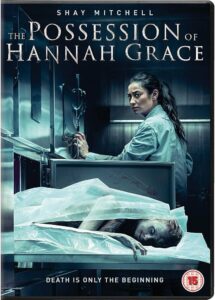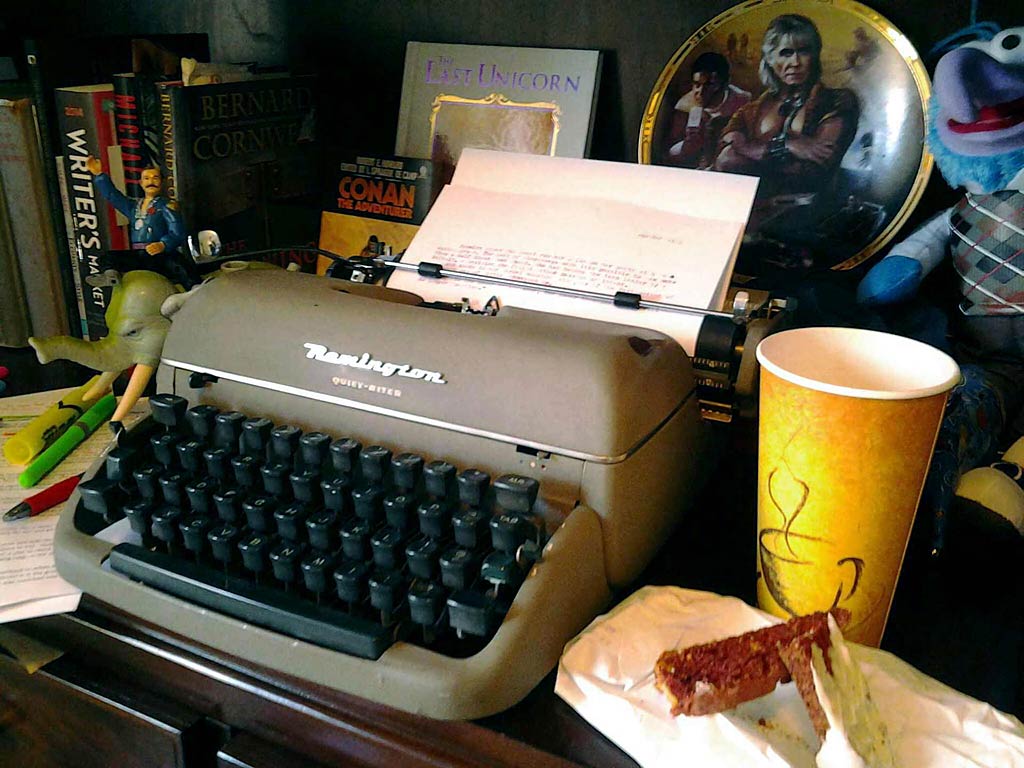I’ve talked about the heart of the story (Scripting unforgettable panels) and I’ve talked about the Gravity of your Story.
These concepts help you identify the core concept elements (Storycraft for Comics) and they are fundamentally critical to genuine store and your production of a successful book/script.
Let’s talk about the horror movie, The Possession of Hannah Grace.

If you’re not into horror, stick with me here, the discussion will help no matter what genre you write in.
Ok, Hannah Grace is a poor man’s, Autopsy of Jane Doe.
It’s not bad, but in retrospect I realized how much it missed its mark.
Synopsis: Hannah Grace gets possessed by a powerful demon. Her father kills her. A few months later her corpse winds up in the morgue. <No spoiler alert. This all happens in the first 10 seconds of the movie.> Ok, so in the morgue, it turns out she’s not actually dead, she just needs to kill a few people to get her second wind.
Ultimately, and to an extent, sadly… Hannah Grace is about a demon body girl smokin’ unsuspecting people. It’s like Jason or Mikey Meyers confined to a morgue.
In my book, a demon girl on a killing spree in a morgue has ultimate potential, but here’s the problem.
As a Jason/Meyers slasher kill fest, Hannah Grace misses the markers to make it really stand out, satisfying, and a fully entertaining movie.
There’s another bit to the story.
I don’t even remember it off hand anymore, but the main character suffers from PTSD and is all mentally out of whack, trying to regain her focus and momentum in the world by taking this new job at the morgue. So there’s a distinct dramatic character arc (at least the attempt of such).
They really spin the character arc with enough meat that it works as its own separate subplot…
If they didn’t want to develop a slasher kill fest, they could have fallen back on the character arc. Fully develop the arc so it becomes the focal point that carries the entire narrative.
But they didn’t do that and quite honestly, what they did with the arc, fell flat as well.
A’ight, we’re not done.
In this kind of story, there is a colorful history in the backstory.
Demons, possession, the fact that this demon’s actually been killing for a while, these are all elements that could be exploited. Again, this is a third element that the writer COULD have fallen back on to carry the narrative.
If I remember correctly, in Autopsy of Jane Doe, they actually do bring the background story front and center. Learning more about that supernatural element as that story unfolds.
In Hannah, they pretty much totally ignored it.
- Supernatural demon kill fest.
- Dramatic main character arc.
- Supernatural background story.
While I don’t know the writer’s original intent, any one of these elements has potential as a core concept. From my perspective, Hannah clearly wanted to be a supernatural slasher (demon kill fest). It’s gravity and heart seemed to be there. You can see and feel it trying to push through in that regard… but it lost its way in the effort, never reaching its real potential.
A great story would nail any one of these perfectly, relying on it and it alone to drive the story experience in spades.
A superb story would recognize the unique potential of all three of these elements, and nail them all. (and yes, that is certainly harder to do.)
In Hannah’s instance, none of the elements were nailed. I got the distinct impression that the writer didn’t know which path to pursue. Juggled all of them, without enough attention, and wind up dropping all of them.
Verify Your Concept
When you do an edit pass on your writing, you look for specific elements. You assess their effectiveness, make corrections, moving on only when they get your seal of approval.
The concept of your story should be no different… yet, when was the last time you actually assessed the concept itself as a whole on a work after you started scripting?
Most writers take the concept for granted once they have it and rarely give it a second glance.
Hopefully you’ve put the heart, gravity, and core concept of the story to paper in some form early on.
When you’ve got the first draft done, go back and compare notes. Ask yourself, does ‘whatever you wrote down’ carry through the entire story?
Is what you wrote down, what the story really delivers?
Keep in mind, I’m not asking you to verify the concept’s effectiveness.
You’re specifically looking to see if the concept is present and dominant.
If you fall back on your writer objectivity, it’s certainly possible for you to verify your concept’s effectiveness. HOWEVER, most writers tend to get too close to their work, especially after multiple drafts and/or sitting with the work for an extended period. Under these conditions it gets really difficult to separate what you know about the story, from what’s in the actual script without the fresh, impartial eyes of an outside editor.
It’s not necessarily wrong, if a story’s switched gears during the writing process. If Hannah started out in the discovery process as a supernatural slasher, then switched to a dramatic character arc piece a rewrite or two in, that could be fine. The important thing is you recognize the shift and make sure, the dramatic character arc piece is firing on all cylinders and more importantly… the dramatic character arc piece is the type of work you really want to produce.
Always remember, the best, highest concepts in the world don’t mean anything, if the story loses track of itself half-way through and zigs when you wanted it to zag.
Proper Sequels
Did I ever write the sequel article? I can’t remember off hand.
This article made me think of it, because this aspect of “verifying your concept,” is one of the core blunders by bad sequels. Typically, a bad sequel will misidentify the core concept of the original work. They attach to the wrong thing, and then even if they do everything right in the second installment from a narrative standpoint, it’s still completely distanced from the heart and gravity of the original.
Such an approach makes pleasing the original fan base, nigh impossible.
Won’t go into it more than that here, but just something to think on… food for thought. ▪
About the Author —
If you enjoy this article, please share the direct link on your social media.
Newcomer or veteran writer, if you’re working on a project that needs commercial success, Nick urges to you read this intro article.
Nick Macari is a full-time freelance story consultant, developmental editor and writer, working primarily in the independent gaming and comic markets. His first published comic appeared on shelves via Diamond in the late 90’s. Today you can find his comic work on comixology, Amazon, and in select stores around the U.S.
